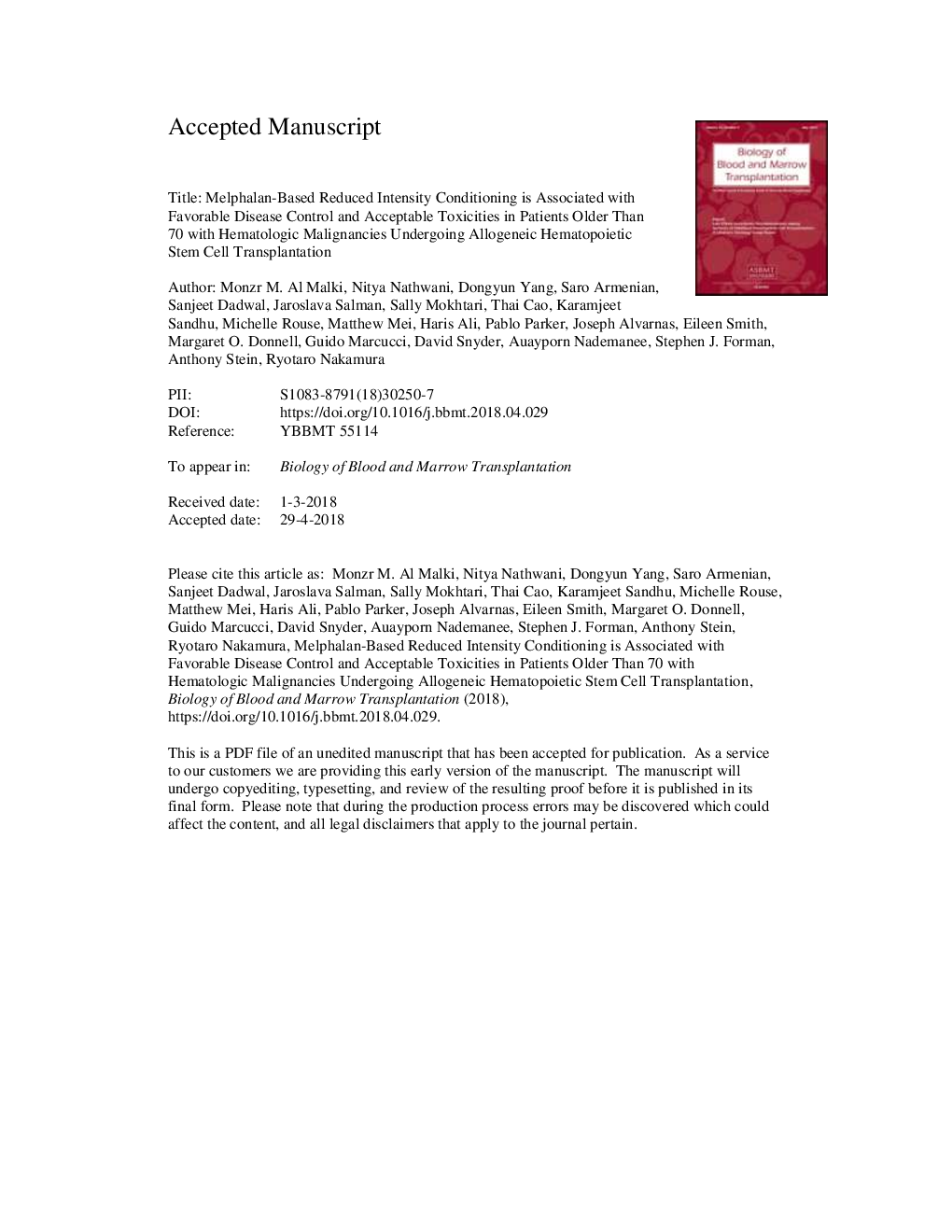| Article ID | Journal | Published Year | Pages | File Type |
|---|---|---|---|---|
| 10157453 | Biology of Blood and Marrow Transplantation | 2018 | 25 Pages |
Abstract
Allogeneic hematopoietic stem cell transplantation (alloHCT) is offered increasingly to elderly patients with hematologic malignancies. However, outcome data in those who are 70 years or older are limited, and no standard conditioning regimen has been established for this population. In this retrospective study we evaluated the outcome of 53 consecutive patients aged 70 years and older who underwent alloHCT with melphalan-based reduced-intensity conditioning (RIC) at City of Hope. Engraftment was prompt, with median time to neutrophil engraftment of 15 days. More than 95% of patients achieved complete donor chimerism within 6 weeks from HCT, consistent with the “semiablative” nature of this regimen. With a median follow-up of 31.1 months, the 2-year overall survival (OS), progression-free survival (PFS), and nonrelapse mortality (NRM) were 68.9%, 63.8%, and 17.0%, respectively. Cumulative incidence of relapse at 1 and 2 years was 17.0% and 19.3%, respectively. One hundred-day cumulative incidence of grades II to IV acute graft-versus-host disease was 37.7% (grades III to IV, 18.9%), and 2-year cumulative incidence of chronic graft-versus-host disease was 61.9% (extensive, 45.9%). The only significant predictor for poor OS was high/very high disease risk index. Transplant-related complications and morbidities observed here did not differ from the commonly expected in younger patients treated with RIC. In conclusion, alloHCT with a melphalan-based conditioning regimen is associated with acceptable toxicities and NRM, lower incidence of relapse, and favorable OS and PFS in patients aged 70 years or older.
Keywords
Related Topics
Life Sciences
Biochemistry, Genetics and Molecular Biology
Cancer Research
Authors
Monzr M. Al Malki, Nitya Nathwani, Dongyun Yang, Saro Armenian, Sanjeet Dadwal, Jaroslava Salman, Sally Mokhtari, Thai Cao, Karamjeet Sandhu, Michelle Rouse, Matthew Mei, Haris Ali, Pablo Parker, Joseph Alvarnas, Eileen Smith, Margaret O. Donnell,
